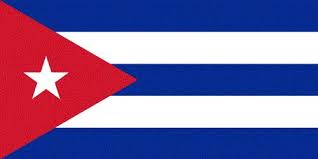The Cuban Health Paradox: 2015 Spring Break Abroad Program

For a long time, seeing Cuba in person has been a privilege extended to very few Americans. But in the midst of warming diplomatic relations, a group of UNC Charlotte students will again have a chance to travel and learn on the island nation.
The October 30 sign-up deadline for the 2015 faculty led spring break program, “The Cuban Health Care Paradox” is just around the corner. From the eclectic and weathered façades of Havana, to scenic and resource-scare rural Cuba, students will traverse the country and meet its people—all in the context of an examination of the inner working of its healthcare system.
“Cuba’s approach to health care is very different from ours,” said Maren Coffman, School of Nursing professor and program leader, “They achieve better health outcomes through a prevention and health promotion approach at a fraction of the cost. I am awed by what the Cuban people are able to accomplish despite severe shortages of medical supplies and equipment.”
Cuba has one of the highest physician-to-patient ratios in the world, and better infant mortality rates and a longer life expectancy than the United States.
The Cuban healthcare system, and how its success fits within the larger structure of Cuba’s communist, often dysfunctional, government is a continued area of interest for health practitioners and policy makers in the United States. Students who participate in the UNC Charlotte study abroad program start to uncover parts of that mystery for themselves. The group will tour healthcare facilities including a hospital, maternity home, multispecialty health clinic, and family physician’s office.
Coffman said students are inspired by the resilience and spirit of the Cuban people.
“They get a first hand look at how the Cuban health care system can achieve excellent outcomes using a low technology, people-centered, and prevention-based approach. Students report the trip helps them approach patients and client interaction in a more holistic way.”
Over the semester prior to the trip, participants take a three-credit course where they learn Cuban history, politics, culture, education, religion, and the health care system.
“As a result of the trade embargo and travel restrictions, many students have very limited knowledge and understanding of Cuba initially. They need to have a deeper grasp of the country to fully immerse and engage in the program,” said Coffman.
Research shows study abroad programs influence students’ career path, world view and self-confidence. Coffman called the program a “defining moment” for many participants, and noted that students come away with a new perspective on the personal freedoms and resources available in the America.